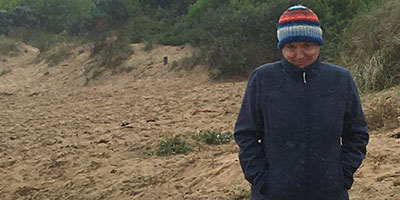I am a DES Daughter with two daughters, B. and M. My younger daughter M. is now 42; but when she was 13 she began experiencing severe pains in her abdomen .After many visits to doctors and Emergency Departments, one night she was admitted to hospital and, to our great good fortune, she was seen by Professor David Healy, Head of the Department of Obstetrics & Gynaecology at Monash Hospital, and a distinguished clinician and researcher.
After a day surgery procedure to see what was going on we were informed that M. had been born without a vagina, i.e. the tube that connects the uterus to the outside area. Thus, M. had reached puberty but each month when she had a period the blood had nowhere to go, and so was building up in her uterus and eventually seeping out into the surrounding abdomen space.
Many solutions were tried over a number of pain-filled years: Depo provera to stop the periods while a solution was found (that didn’t work); and many operations to create an opening to the uterus (which kept healing over). The only temporary fix that worked was monthly injections of Zoladex, a drug not normally used in women but given to men with prostate cancer, and costing over $300 a month.
I cannot speak too highly of Professor Healy, such a caring and wonderful doctor. He saw M. every week, free of charge, for a couple of years.
Finally, when M. was 17, a group of surgeons -Professor Healy; Mr Arthur Day, a Gynaecologist; Dr Simon Ceber, a Plastic Surgeon; and Dr James Grimwade, an Ultrasound Specialist - assembled at the Freemasons Hospital and performed an operation to create a vagina using skin grafts from M.’s thigh.
The operation was a success and M. now went on to have normal, if extremely heavy, periods!
The happy ending to this tale is that she married in her early 20s and now has an 11 year old daughter, and 2 sons aged 8 years and 5 years (all delivered by Caesarean section). Her younger son has the middle name ‘Healy’.
To finish off, I always felt there was a connection between DES and M.’s situation; but if I ever mentioned it to any doctor they had little knowledge of DES, would just shrug their shoulders and dismiss the idea.
I’d be interested to know of any other similar experiences by DES granddaughters.

